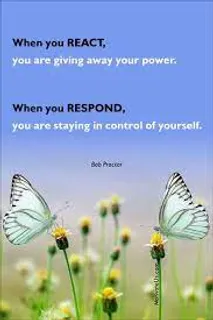Uncategorized
React or Respond?
There are ways to teach your kids to adapt to change in a positive manner.
What do you see in your child’s response when situations change?
It can take the form of resistance, avoidance, distraction, negotiation, or a full-blown meltdown.
Do you react, or do you respond?
Reacting is quick. You do not really think about what you’re saying. Reactions are sometimes negative, hurtful, untrue, and not well thought out. Children may take these reactions the wrong way.
As children develop, their brains “mirror” their parent’s brains. In other words, the parent’s own growth and development, or lack of those, impact the child’s brain.
Responding is taking a breath, considering what you have been told or asked, and answering in a slower, calmer, and well thought of way.
Sensitive, responsive parents make children feel safe.
Changes allow children to develop strategies to be able to control their behavior and emotions. Children can better cope with changes if adults respond to the child’s needs to develop a relationship that shows trust and ensure that children are supported.
The choice is yours.
“When life’s stressful, our kids watch us for cues. When we keep calm amid chaos, we teach our kids they can too.”
It has been said that we cannot control what happens to us, but we can control how we respond.
Before anything, take a deep breath, and teach your child to do the same.

